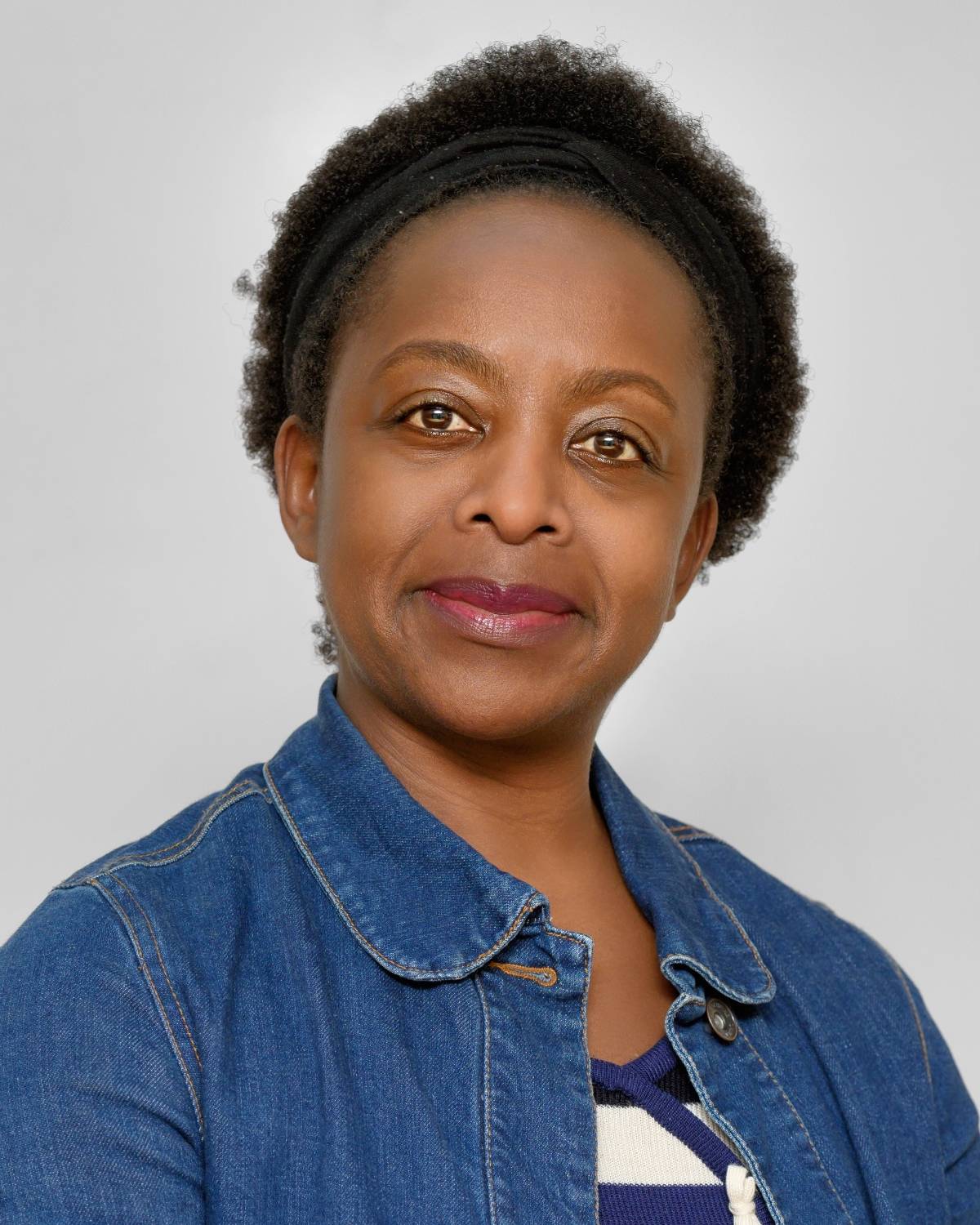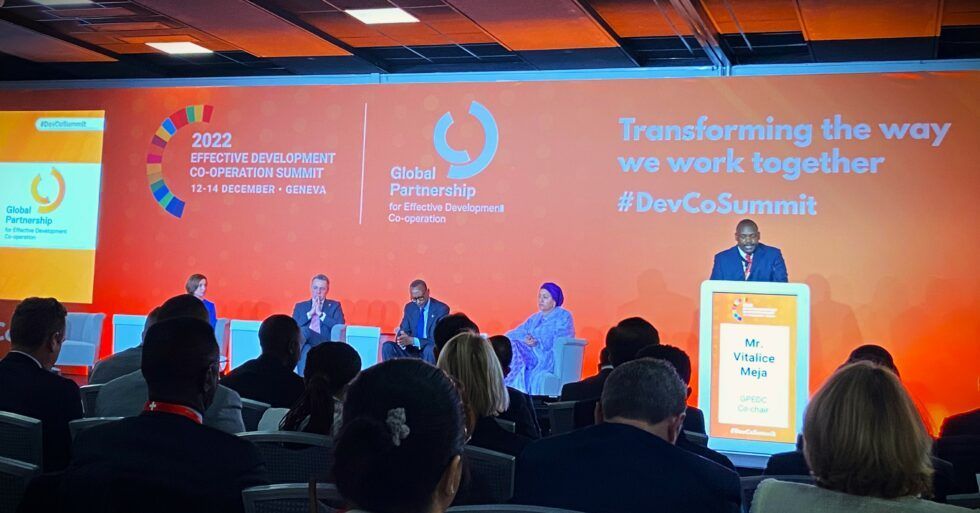On December 12-14, 2022, governments, civil society organizations (CSOs), and businesses gathered in Geneva, Switzerland, for the 3rd High-Level Meeting (HLM) of the Global Partnership for Effective Development Co-operation (GPEDC or Global Partnership), also called the Effective Development Co-operation Summit. Established at the 2011 Busan Forum on Aid Effectiveness, the Global Partnership is a multistakeholder network of countries and organizations united around four foundational principles of effective development co–operation: country ownership, focus on results, inclusive development partnerships, and transparency and accountability. Departing from previous aid effectiveness commitments made in Rome (2003), Paris (2005) and Accra (2008), Busan shifted the focus from traditional aid to development co–operation, recognizing the important roles of diverse development actors.
The development co–operation landscape has significantly changed since the Busan Forum. The adoption of the Sustainable Development Agenda in 2015 stressed the importance of tackling global challenges by using development assistance in a more “catalytic” way. However, global efforts to drive sustainable development are facing profound headwinds, from growing inequality to escalating conflicts compounded by climatic shocks. The 2022 Summit participants recognized that development co–operation must continue to take place under increasingly challenging circumstances and converged on the value and relevance of the four effectiveness principles. They also pointed to the need to attend to development co–operation trends and varied country contexts. In his opening address, Mr. Ignazio Cassis, President of the Swiss Confederation said that what differentiates us should not divide us: “Common values and a mutual respect are our compass. We must take responsibility and act together. This is the raison d’être of the Global Partnership.”
Civil society delegates, represented through the CSO Partnership for Development Effectiveness, condemned the dwindling of development resources and the slow pace of collective action. They voiced the sector’s positions about conflict and fragility, climate finance, and shrinking civic space at the Unmet Gala, a parade highlighting unmet commitments towards sustainable development goals. CSOs also acknowledged the Summit gains, including the emphasis on building trust to make development cooperation more effective, and the momentum in favor of a revised national monitoring framework. Beginning in 2023, the 35 countries that subscribed to the new monitoring framework should drive enhanced accountability, encourage inclusive and evidence-based dialogue, including with the private sector, and promote behavior change.
Following the Summit, the CSO Partnership vows to further promoting multi-stakeholder initiatives that enable civil society to play its role in effective development. Here at home, Cooperation Canada will continue to consult with the CSO Partnership and work with its members and the Government to boost Canadian leadership in favor of the SDGs and in support of country ownership of global solidarity initiatives. Cooperation Canada welcomes Canada’s endorsement of the Donor Statement on Supporting Locally Led Development released during the Geneva Summit and looks forward to collaborating with the Government around effective and coherent approaches to advance development, humanitarian, and peacebuilding efforts. Canada’s feminist leadership can and will make a difference in turning words into the global action called for by multiple commitments, including the Busan Partnership for Effective Development Cooperation (2011), the Agenda for Sustainable Development (2015), the Grand Bargain (2016), and the OECD-DAC Recommendation on Enabling Civil Society in Development Co-operation and Humanitarian Assistance (2021).

Carelle Mang-Benza
Policy Lead, Cooperation Canada
Want more information? You can contact our Policy Lead, Carelle Mang-Benza.

